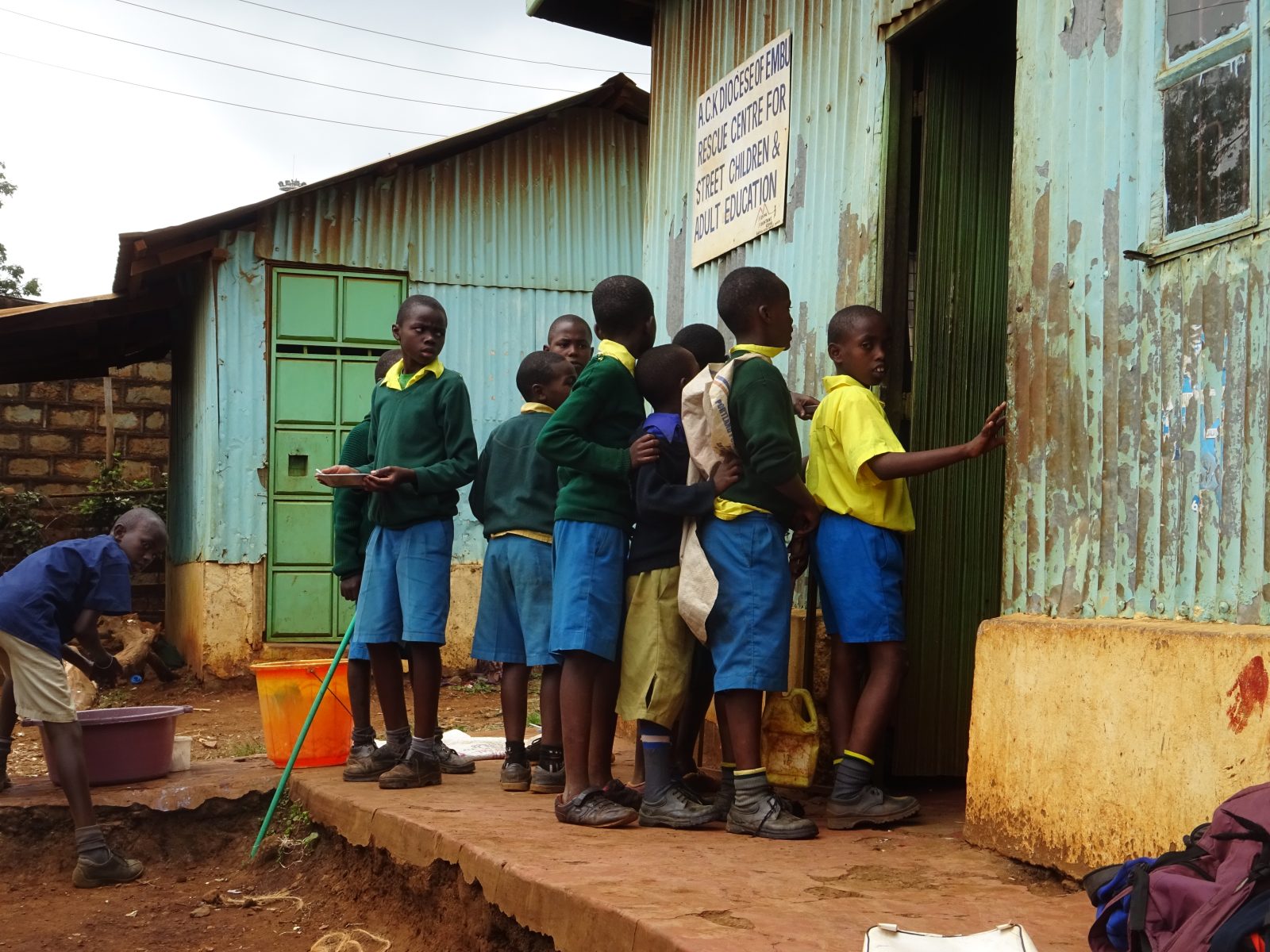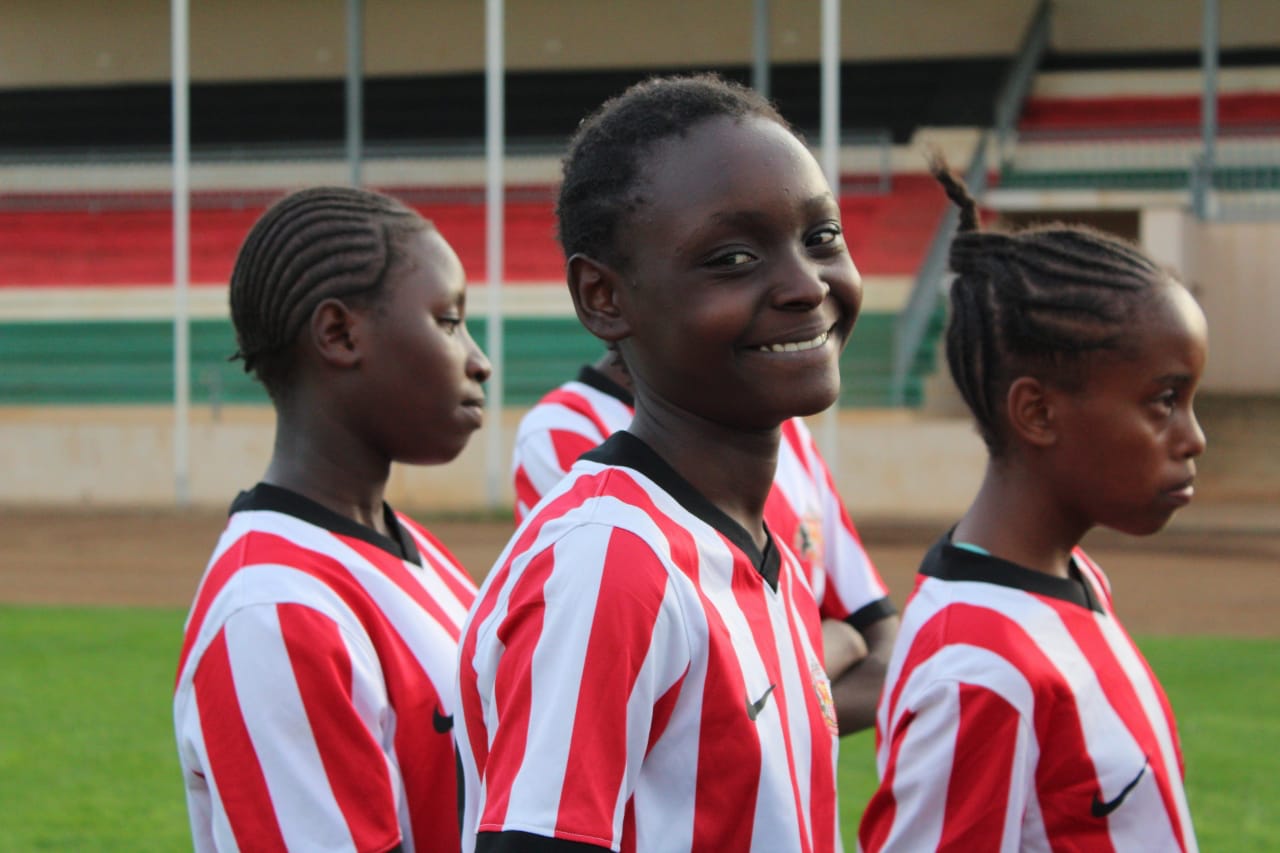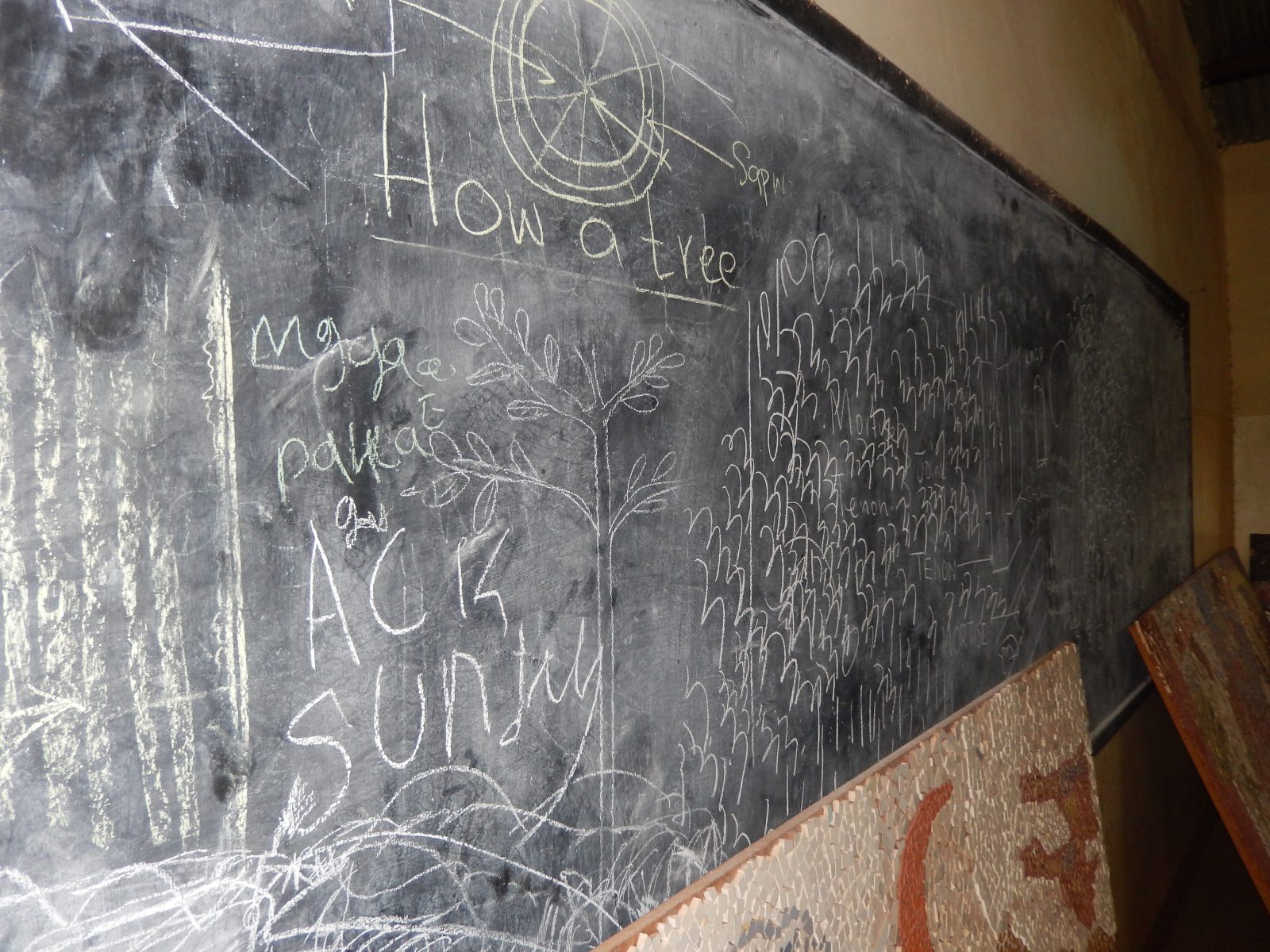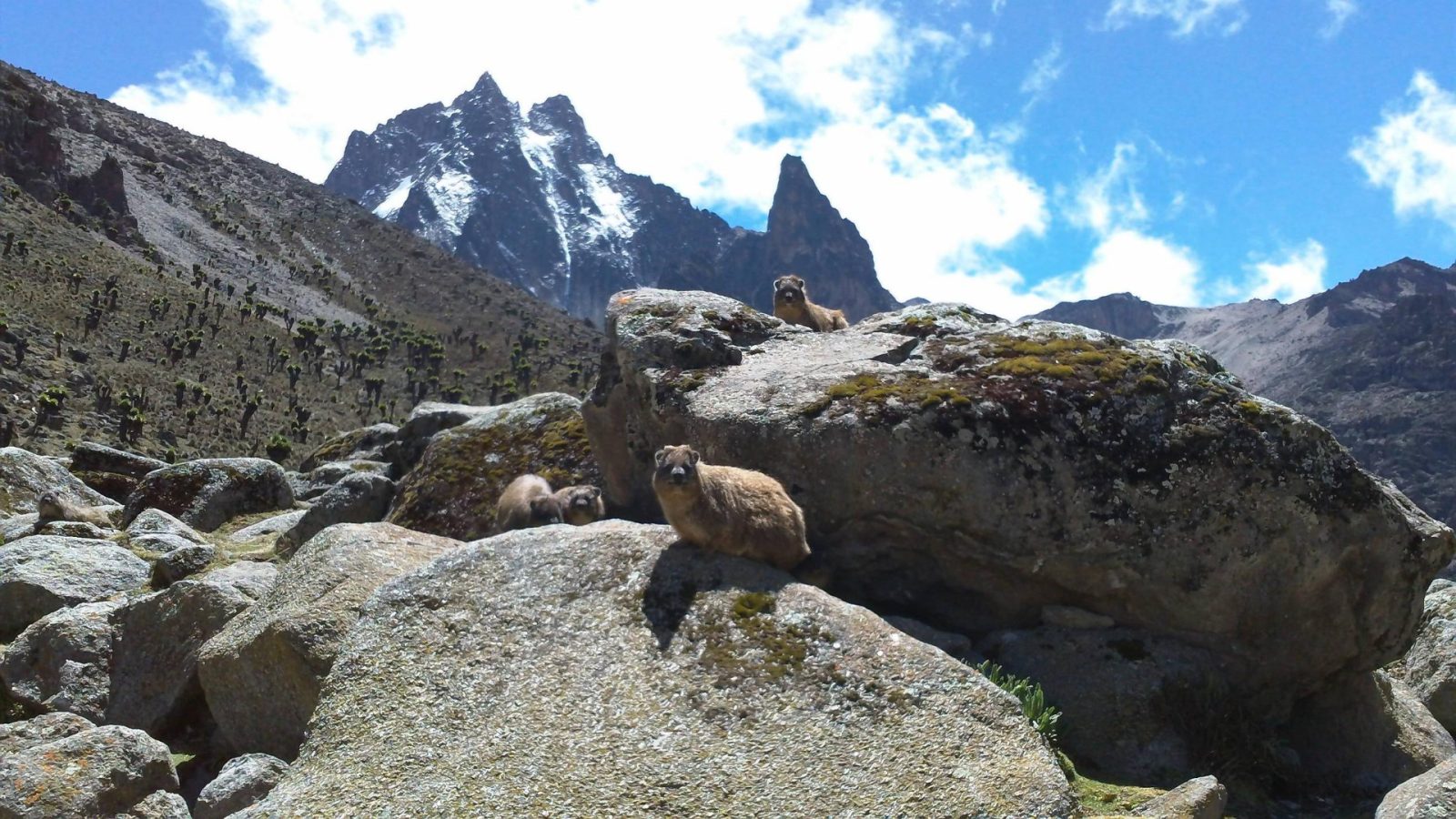
Kenya School Adventure
This adventure for schools has been running since 1996 and has successfully delivered a positive and influential experience to thousands of young people, both in the UK and in East Africa. It is still just as popular with students now as it was in the days before mobile phones and social media. It teaches real life skills of communication and teamwork and is an opportunity to travel abroad, meet some remarkable people and take part in a long term rehabilitation programme for many thousands of children.
Overview
This adventure for schools has been running since 1996 and has successfully delivered a positive and influential experience to thousands of young people, both in the UK and in East Africa. It is still just as popular with students now as it was in the days before mobile phones and social media. It teaches real life skills of communication and teamwork and is an opportunity to travel abroad, meet some remarkable people and take part in a long term rehabilitation programme for many thousands of children.
The trip is very well staffed and managed by people who have been running the programme for many years, but at the same time it teaches the visitors about self-reliance and self-esteem, and it helps young people develop their values and beliefs in an increasingly complex and confusing world.
Many people want to come on trips like this to ‘make a difference’ and on this trip we have found that the difference is not only in contributing to a useful project in another part of the world but also the positive impact it has had on a person’s sense of self. Many have come back with a wider perspective on the world and on big issues like poverty, aid and development.
The service element of this trip has changed lives and communities in Kenya too. Known as ‘Africamp’, they began as month long school expeditions centred around a summer jamborees for street children called ‘Sisi Kwa Sisi’ which means ‘togetherness’ in Swahili. The aim was to bring young people from abroad together with these children who the founder Gavin Bate was working with at the time, in order to promote equality and develop self-esteem.
Since 1996 it has been very successful. Thousands of Kenyan children have been supported by Moving Mountains, and the Sisi Kwa Sisi camps have become integral to their development. Most of the current staff attended these camps when they were children, and they are now middle class with children of their own. The programme enabled them to become educated, break out of the poverty trap and become middle class citizens, now with their own children who will never suffer the same privation that they did.
The Kenya School Adventure – Africamp – is both an amazing experience for the visitors and a transformative experience for the beneficiaries in Kenya. It has also become a major event in the regions where we work, providing long term income and revenue and relationships.
Kenya School Adventure (Africamp) Itinerary
This is a 24 day trip with 22 days in country, split into various sections:
- Arrive in Kenya and meet the Kenyan team, travel to the project location and settle in – 3 days.
- Project and Camp – 10 days – during the time everyone will be camping together and working on the project that has been decided by Moving Mountains Kenya. There will be visits and sightseeing, games and competitions, cooking and camping activities, as well as the actual project which might be a renovation or a building.
- Mount Kenya – 5 days – a trek to Point Lenana which is the third peak of this mountain and non-technical. The team will be camping at designated park campsites and preparing their meals with our staff, and guided by professional guides. Porters are used to help carry bags.
- Wildlife Safari – 4 days – using our overland safari trucks the team continue their journey in Kenya through National Parks to experience the wildlife and this amazing land. Camping in designated campsites in and out of the parks, the team will be with our staff and helping to set up the camps and prepare meals.
- Travel back to Nairobi before heading to the airport for flight home – 2 days.
Flexibility and Custom Trips
We work with every group to build the itinerary that best suits the school dates and preferences. The Mount Kenya climb can be optional and we can adjust the number of days to suit. In this case we set up a private itinerary on the booking page to reflect each individual school trip
The day by day itinerary below reflects the full Africamp itinerary which includes international travel.
Depart home and fly to Nairobi, meet our staff and some Moving Mountains beneficiaries and travel to the project location by vehicle and settle in.
Running the summer camps for the Kenyan children supported by the charity and/or the renovation or construction work which is supervised by our staff.Each school differs slightly, depending on the exact project chosen by Moving Mountains Kenya and the location of the camp. Some are in schools in Embu, a market town two hours from Nairobi, and some are in Western Kenya which is further away and more rural. We discuss and arrange this with each school in advance.
You can see all the schools and places we work on this website under Country Projects.
The camps are like Jamborees with lots of activities including camping skills, cooking, teaching, crafts, sports and music.
Trek up to the peak of Point Lenana on Mount Kenya.
Includes travelling to the town of Naro Moru at the base of the mountain and visiting the Mau Mau caves, preparing for the expedition, followed by five days on the mountain itself.
Safari in the Rift Valley. This section of the trip travels through Kenya visiting some National Parks, seeing wildlife and some of the amazing natural sights like Hells Gate, followed by a more relaxing time near the Great Lakes.
Travel back to Nairobi airport and take the flight home, arriving normally the next day.
Cost
Kenya school adventure cost is flexible according to time in country and activities undertaken but an average figure for about two weeks in country is £1500.00. It also depends on how many young people are going and whether adults are included in the cost or paying themselves. With all the variations available, we tend to find that every trip is a different price and every trip is quite individual to the group visiting.
INCLUDES
- Kenya staffing and ground logistics including all the transport, transfers, tents and meals. Accommodation throughout will be provided in comfortable and spacious safari tents.
- Moving Mountains project and camp costs. Depending on how many people are going on the trip Moving Mountains will decide the nature of the project and the number of children at the camp. We reserve the right to run just a camp with no project, or vice versa. We will discuss with you and the committee in Kenya what are the priorities and what will be the exact project.
- Mount Kenya – park permits, guides and porters, all equipment and meals -f the mountain is part of the programme
- Safari – all costs of national park entry fees, safari trucks and fuel, camping costs and staffing
- Amref ‘Flying Doctor’ registration for emergencies
EXCLUDES
- Return flight to Nairobi
- Personal travel insurance
- Kenya Visa
- Travel vaccinations and anti-malaria tablets
- Personal spending for souvenirs, snacks, etc
Travel Insurance – you will need travel insurance for this trip, and normal holiday travel insurance is adequate as long as it covers trekking to 5000m. We advise you to get this insurance early on, so that if you have to make a late cancellation for some reason then you will get all your money back.
Food will be plentiful and cooked by everyone on the site, our staff with your help and the kids camping with us. On travel days it tends to be lighter picnic lunches but dinners will be cooked, and a mix of both local dishes and western dishes. Expect to try the stable diet of ugali with vegetable stews, lots of potatoes, rice and plenty of fruit and vegetables. Boiled water will also be provided throughout the trip, as well as hot drinks and juice.
Adventure Alternative – you can also book this trip directly with Adventure Alternative by going to their School trips page. In this case the payment would be £1695.00 to Adventure Alternative, and the fundraising aim would be collected separately for Moving Mountains.
Here is a video which shows you the sorts of projects that the money supports and where some of the Kenya school expedition teams visit:
Kit List
Packing list for Kenya School Adventure
- 65-75 Litre Rucksack (put in duffel on plane) and cover
- 80-120L duffel bag
- Day Pack
- Stuff sacks of various sizes
- Waterproof jacket and trousers plus gaiters
- Fleece jacket or warm jacket
- Fleece tops or jumpers
- Trekking trousers and shorts, leggings
- Shirts and tops
- One set of warm thermals or base layer
- Warm hat, neck buff and a good pair of gloves
- Sunhat
- Sunglasses
- Socks, thin ones and thicker ones for trekking
- Walking boots, trainers, sandals
- Walking poles, optional but useful for coming down on the mountain
- Working clothes for project and camp – general selection jeans, tops etc
- 3-4 season sleeping bag (comfort temperature approx -5 deg C) and a compression sack to keep it in
- Sleeping bag liner, made out of cotton, useful to keep sleeping bag dry and clean
- Sleeping mat – can be inflatable or closed cell
- Head torch & spare batteries
- Camera, memory card & batteries, phone, mp3 player etc, plus chargers (normal three pin plug is fine). Power bank is also useful.
- Water bottle
- Washkit including biodegradeable soap and shampoo, wet wipes, toothbrush and paste, hand gel and other basics.
- Personal Medical Kit – Paracetamol, antiseptic wipes, plasters, blister plasters, zinc tape, insect repellant, lip salve, throat lozenges, rehydration sachets (Dioralyte), sunblock cream, water purification tablets, and any personal medication.
- Anti-Malarial tablets as prescribed
- Passport and student card
- Travel insurance papers
- Plane ticket
- Money
- Any books, cards or games
- Photos of family, house, home area etc to show to your new friends in Kenya, they love to see where you come from!
Note: you must check with your GP for your personal suitability to all medicines and their possible side effects and interactions. Please inform us of the details of all regular medication that you intend to use though the course of your trip and any relevant allergies and medical history related to them.
You also need to check the requirements and regulations of the airline and all countries visited in relation to medications. For example; laws governing transport of some pain control medication and the need keep insulin at a suitable temperature, i.e not in the cargo hold.
Clothing advice
CLOTHING TIPS FOR KENYA SCHOOL EXPEDITION
- Make sure hiking boots are leather (fabric boots should have a waterproof lining) and broken in.
- Clothing for the mountain needs to be quick drying in case it gets wet. Make sure that you have two changes of trekking trousers and a base-layer top and a fleece top as well as a warm coat. It can be well below freezing at night on Mt Kenya and on the first half of summit day.
- Your sleeping bag should be at least three season and you also need a good sleeping mat for insulation. You can take a sleeping bag liner made out of cotton which adds warmth and also keeps your sleeping bag clean. You can make this out of any bedsheet sewn up the side to make a bag.
- You will be able to wash clothes – handwash in washing powder, that is. The problem is trying to dry things so you may only have the opportunity to wash smalls. On the mountain there is no opportunity to wash clothes at all.
- Take old clothes to wear for the project and camp, they will get dirty, and covered in paint quite possibly. You need travel clothes which are clean for the travelling home bit, and for safari, but on the camp and project it will be pretty dirty. A lot of people just leave stuff behind because it’s not worth taking home! Similarly with shoes, bring a pair of comfortable old shoes for the camp, and some heavier boots for any work on the project.
- If you wear contact lenses take plenty of saline and comfort drops- it can get dusty.
- Mosquito nets are optional. The tents have inbuilt nets and people in the past have generally not had a big problem with insects.
- Do not bring porcelain plates – bring plastic and a few spare spoons – they always go missing. Make sure that plates and bowls are of a generous size so that you can fit the food in; you will be hungry!
- Girls will have to dress conservatively in shanty towns and in public. You will draw unnecessary attention to yourself and maybe cause offence if revealing clothing is worn. If you do not bring appropriate clothing you will either have to buy more when you arrive or risk not being able to take part in many activities.
- Keep your money somewhere safe in a bumbag. Do not bring large wads of notes with you. If you take sterling cash with you make sure they are Bank of England notes, not regional notes, eg Northern Irish notes or Scottish notes.
- For the mountain, work on a layering system which gives you versatility – Tshirt or thermals, shirt or warm top, fleece, waterproofs. Gloves and hats are vital, as are sunglasses and suncream.
- Your rucksack will need to carry everything on the mountain including food and stoves and tent. But during the camp a rucksack can be annoying to keep on emptying out to find stuff so you might want to bring a duffle bag as well.
It is likely that a large number of you will be buying similar (if not identical) items. If so, get together and visit a shop together, speak to the manager and say that you have a potentially big order and negotiate a discount. Tell them about the trip and that you will be doing charity volunteer work. Most companies are fairly flexible in this regard. Also, no need for all of you to bring a seperate roll of toothpaste, there’s lots you can share and save weight on!
Booking a Moving Mountains Trip
Schools can either book students on Africamp as a school trip, or the school can promote the trip which participants sign up for individually.
In the first case, the school contracts Moving Mountains and it’s provider Adventure Alternative to fulfil the expedition, and payments would be made collectively by the school. A GDPR agreement would be made for the sharing of information, and the school would help promote, recruit and prepare the group which is normally aged 14 – 18. Dates are flexible to fit school holiday dates and the school would provide a number of teachers to attend the trip and provide pastoral care. Fundraising would be done in the school, with some schools preferring that the actual trip cost and flights are covered by the participants themselves.
In the second case, the school would promote a trip to its students and help recruit participants, but application and payment would be done individually by the participant (normally his or her parents). The contract is between the individual and the charity, not with the school. Fundraising can still be done in the school but each individual would be required to commit to the total minimum, rather than the school making that commitment.
About Adventure Alternative
Moving Mountains contracts Adventure Alternative as the tour operator to provide the trip itself, all the necessary consumer protections against insolvency, and also liability insurance to comply with travel regulations. Adventure Alternative, also founded by Gavin Bate, has a company in Kenya with its own vehicles, equipment, office and full time staff. Nothing is outsourced, everything is checked. Adventure Alternative Kenya manages hundreds of holidaymakers every year and has been the ground handler for our school trips since 1996.
Adventure Alternative is fully compliant with the legislation for running school trips abroad and would welcome the opportunity to share this information with teachers, school governors or county councils. You can read more about this on our About Us page and the Adventure Alternative tab.
Safety of Students on Our Trips
Our Kenya school trips are very well organised and well staffed and very safe; our track record since 1996 speaks for itself. We have been running these Africamp trips three or four times every year and seen thousands of young people experience the trip of a lifetime. In that time we have built and renovated eighteen schools in Kenya and a school in Tanzania.
We have a deep and comprehensive understanding of the country and a long and successful legacy and a remarkable network of support, which is a very protective and reassuring element of our operations in Kenya. Gavin Bate the founder lived in Kenya for many years and our main school trip co-ordinator and Trust Treasurer Andrew MacDonald married a Kenyan and has lived there on and off with his children for many years.
Safety is paramount, we comply with the British Standard 8848 for overseas youth expeditions and our staff have been running this trip for well over a decade. The Kenyan staff are brilliant at their job, and in many cases attended the original trips as children back in the 1990s.
All the staff have UK First Aid qualifications, speak perfect English and have many years of experience working with young people.
Our itineraries are in beautiful, peaceful, rural regions, we never spend time in Nairobi or the big cities; our groups never see or hear anything which might be construed as dangerous. Schools and centres in western Kenya or Embu, small communities and villages, the slopes of Mount Kenya or a National Park are amazing and safe places to visit and explore.
Every trip attracts a large following of people who want to be involved – villagers, teachers, Doctors, government authorities, local police, tribal elders, village committees, social workers and many children all take part in these trips, and in all our years of running this trip we have simply never experienced any sort of security issue or problem. We always stick to the places we know so well and where we are so welcome.
We have a library of up-to-date risk assessments and documentation for these trips which you are welcome to see.
Marketing and Short Termism
Adventure Alternative works alongside the charity Moving Mountains to make sure that this is not an over-commercialized trip, nor that it markets on young people’s desire to help others. Both company and charity were started by Gavin Bate in the early 1990s and designed to work together to fund the work he was doing with aid agencies at the time to support street children.
We have serious developmental aims, well evidenced and documented over many years, and we have run this school programme with an emphasis on the long term benefits. The beneficiaries are supported right the way from primary through to university education. The Africamp trips help renovate and build schools that we have very long connections with, and also provide enormous incentive for the children we support in those schools.
Our partnerships with schools, communities, villages and the authorities span decades now; we are absolutely confident that this trip does not fall into the traps of short term-ism, or perpetuating damaging stereotypes of aid. Our experience is that this trip has only ever given all the young people involved a great adventure, lots of self esteem and lots of motivation to make something of themselves.
School Links for the Kenya Adventure
We have been working with various schools from all over the world for many years and we also have teachers and youth workers on our staff team who constantly help us deliver what we feel is the most productive experience possible for the students that travel with us.
We are the provider for Roundsquare expeditions and have been providing school trips since 2008 for schools such as King Edwards School (Bath), George Watson’s College in Scotland, Lomond School in scotland and a number of secondary schools in the Newport area of South Wales.
Importantly we’re there for teachers and parents and always available to help. We are there to help you from the very first initial enquiry, through the build up, training & trip preparation and throughout their time in Kenya. We will help make this possible and support you so that it’s also fun and enjoyable for you too!
Young people tend to apply early to get a place and for many of them the experience of planning, training, fundraising and of course the trip itself forms the basis for their personal portfolio. This trip is an important part of the UCAS application in the UK and the personal statement.
Global citizenship and social responsibility are part of the curriculum of the trip, as is personal self esteem and tackling stereotyped attitudes to aid, race and development. Outdoor skills such as camping, hiking, first aid and teamwork are a big part of the trip, as well as the experience of travelling abroad and coming face to face with global issues of poverty and globalisation.
School Support Staff
Yes, we encourage schools and groups to elect school teachers or parents to come on the trip in a pastoral role, preferably male and female. Support staff receive a free place on the trip (land only) and we can offer one free place to every twelve students.
Long Term Relationships with Schools
We really like to establish long term relationships with schools in the UK because a lot of the Kenya school trip happens at home, with training events and lots of preparation. Clearly there is fundraising to be done, but just as importantly we provide a long lead-in time for the students and teachers and parents. We try to involve multiple departments because this trip touches so many disciplines.
This level of preparation we like to incorporate is a big part of the school relationship, we promote personal development skills and communication skills prior to the trip, which have relevance to modern society and our place in it. Global citizenship and social responsibility are subjects that the trip brings up, as are stereotyped attitudes to aid, race and development.
The groups generally number 20 – 25 and normally come from one school, although we do run open trips which are the scheduled dates on this website. Normally an inital enquiry precipitates a visit and a plan for a school trip that fits into the curriculum and also is determined by Moving Mountains.
Personal Development and International Development
The Kenya school adventure, or ‘Africamp’ as people like to call it, gives young people a chance to see the flipside of life in Africa and challenge themselves in many ways, both physically and mentally. It’s not just about the building project and the kids camp, working with an NGO in different areas of development work and interacting with people from a different culture are life skills. Of course it provides a boost to the CV for job or academic applications, but we believe it also is part of maturing and making decisions about what to do in life.
Do look at the videos tab on this page, there are so many heartwarming stories which we have seen time and time again over the years. The truth is that if you truly have a long term vision in mind, and the motivation to make it happen, then it can really change lives. That is the legacy of our Kenya school adventure, something we are very proud of.
Information on Kenya
The following are a number of relevant links to the provider organisation, Adventure Alternative. All give detailed information to help with your preparation and organisation, it is a lot of reading but well worth going through each of the links to get a better understanding of the trip.
GENERAL INFORMATION ON KENYA;
- General Information
- Excursions
- FAQs
- Guesthouses
- Climate
- National Parks
- Culture
- Practical Information
- Swahili
- Laws
FUNDRAISING AND TRIP PREPARATION;
- Volunteer fundraising guide
- Travel vaccinations
- Travel Insurance
- Kenya school trip kit list
- Sleeping bag guide
- Trekking Boot Guide
- Kenya volunteering activities
- Kenya volunteer training
- Kenya trip preparation
- Expedition provider standards
CAMP AND PROJECT;
- Volunteer Ethics
- Volunteer providers
- Volunteer preparation
- Volunteer guidelines
- Avoiding malaria
- Personal health
MOUNT KENYA;
- Mount Kenya altitude profiles
- Mount Kenya food & lodging
- Mount Kenya books & maps
- Health and altitude
- Acclimatising safely
SAFARI;
Fitness & Abilities
You do not need to be super-fit for this trip, however the expedition element is moderately demanding with some long days of sustained walking with a backpack. The effects of altitude will also further tax your body. But it’s great fun doing it as a team and enjoying the amazing feeling of standing on top of Mount Kenya at dawn.
Climbing Mount Kenya is not a technical climb and there are no precipitous drops along the way, no rock climbing or specialist equipment needed. The paths are in good condition and well trodden; some are steeper than others and it is much quieter than ‘Big Brother’ Kilimanjaro, you could spend five days on Mount Kenya and only meet the Park Rangers positioned at each camp. On summit day the path is mostly scree, which can be loose and unrelenting, especially on the descent when your knees will probably suffer.
The terrain on Mt Kenya varies throughout which leads to an interesting and ever changing environment. In a period of five days you will go from cultivated farmland through equatorial forest and alpine heath, across a lunar-like rocky landscape up to a glaciated summit. Mt Kenya’s unique position just above the equator offers an opportunity to experience so much in one expedition.
Here’s one of our Canadian school trips on their summit day to the top of Mount Kenya:
And here’s the same team climbing through the lower forest areas:
On the project phase you will not be moving very far from the camp which will be immediately adjacent to the project. This is normally in the grounds of a school. There are really no issues here at all, just keeping clean and hydrated and well rested since it’s often very tiring looking after a kids camp all day!
During the safari bit of your adventure, you will be entering reserves/parks usually consisting of dirt roads and sand tracks and not tarmac. If conditions are wet this can lead to adventurous driving but be assured that our drivers are well versed in safe and professional driving skills. If the weather is very dry then the terrain can be dusty so it’s worth bringing a shawl or light scarf to cover your mouth and nose. The vehicles are well maintained and professional safari vehicles.
Solio Kenya Videos
The following videos give a valuable insight in to what this trip is about, not just for the students on it but for everyone involved – staff, children who benefit from the trip and the local communities.
These videos below follow the journey of a group of Canadian students from the east coast who travelled to Kenya to work on a project we were working on in a place called Solio, near to Mount Kenya, where we were building schools and water wells for 18,000 refugees and internally displaced people.
Solio Kenya – the first two films show the place that the students would visit and the project we were doing.
Canadian students arrive in Kenya and meet their Kenyan counterparts, beneficiaries of Moving Mountains, who they will travel with to Solio and run the project.
Arriving in Solio, the Kenyan and Canadian students are all very excited at finally getting to the place where they will be living for the next two weeks.
Working together, the young people enjoy their time together doing the project and playing a Canadian/Kenyan football that is aired to 3000 schools in Canada as part of a national drive to encourage young people to play sport. This dynamic achieved on every Africamp trip since 1991 is a key component of the success of these trips, breaking down barriers and learning new skills and values.
Reflecting on their journey so far, the Canadian students send a message back home the night before their summit of Mount Kenya
Trek Videos
Mount Kenya – the Kenyans and Canadians all trek up Mount Kenya together, a big part of our aim in Moving Mountains to get young people all doing things together. For the Kenyan beneficiaries, to climb this mountain is a big part of their journey to improved self-esteem and self-worth. For the Canadians, it is much the same thing, proving that these sorts of personal development trips benefit everybody.
Summit climb of Mount Kenya where the Kenyan and Canadian students reach the highest point in the country and react with unrestrained joy and elation.
Kenya School Adventure Galleries
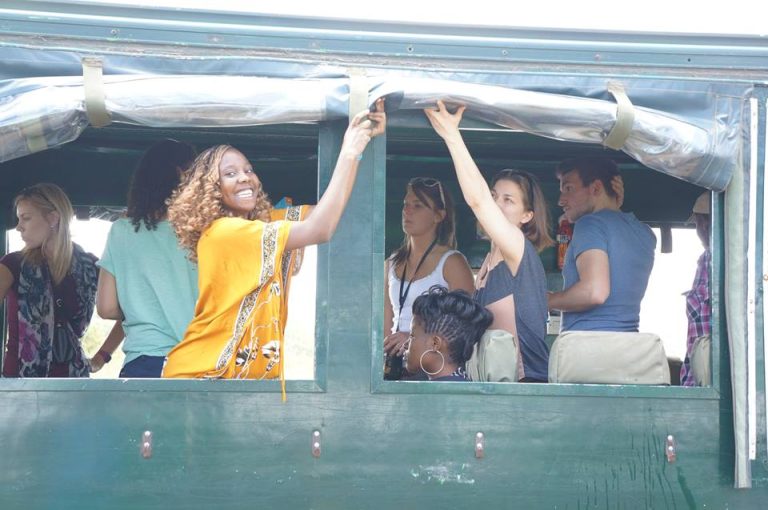
Support Moving Mountains
Other Projects You Might Be Interested In
